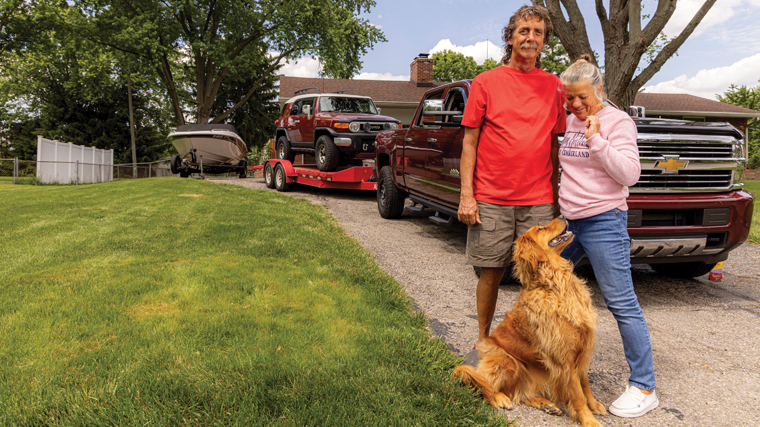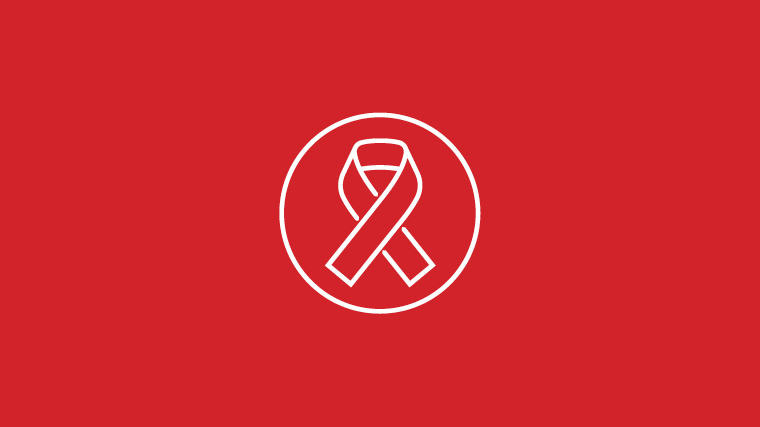Beating Lung Cancer: Scott’s Story

On his way to work one day, Scott Hawk of Tipp City noticed an American Lung Association billboard, “Saved by the Scan,” touting the benefits of low-dose CT screening in detecting early signs of lung cancer. A lifelong smoker, Hawk checked out the savedbythescan.org website – a decision he now says saved his life.
“God put that billboard there and made me see it,” Hawk says. He’s also thankful for Premier Health’s comprehensive lung cancer program, with its sophisticated diagnostic and surgical techniques, newly created lung nodule evaluation program, and fast turnaround from diagnosis to treatment.
No Time To Lose
Just six weeks elapsed between Hawk’s initial suspicious scan and subsequent surgery to remove cancerous lymph nodes. “They were on it like right now,” he recalls.
Pulmonologist Murthy Gollamudi, MD, confirms: “Our goal is to get patients diagnosed within a week or two, so they can have surgery within six weeks of diagnosis.”
New federal screening guidelines have expanded eligibility for low dose computed tomography (LDCT) scans. The Centers for Medicare & Medicaid Services now recommends the procedure for eligible adults aged 50 to 77 years rather than 55. “This is casting the net wider so more patients will get screened, and we find the cancer earlier,” Dr. Gollamudi says.
Testing With Precision
Pulmonologist Soumitra Sen, MD, performed the biopsy using an innovative robotic assisted bronchoscopy platform called MONARCH® that utilizes a telescoping design, reaching deeper into the lung than conventional methods and allowing for expanded access with greater precision. Premier Health was the first health system in Ohio to use this technology.
“It’s like an Xbox controller operated by very fine movements,” explains Dr. Sen, section chair of pulmonary critical care medicine at Miami Valley Hospital. “Scott was an excellent candidate for MONARCH bronchoscopy because his lesion was accessible. We saved him an extra procedure by biopsying his lung mass and performing lymph node surveillance in a single procedure.”
Hawk’s lung cancer was staged at IIA, or early-stage lung cancer; by the time of his surgery only a month later, the cancer had advanced to stage IIIA. “Had he not sought medical care when he did, he might have been diagnosed when it was too late,” Dr. Sen says.
Lung cancer is the leading cause of cancer deaths among both men and women, Dr. Sen notes, but with early-stage detection patients have upward of a 90%, five-year survival rate. “People routinely get screened for breast cancer and colon cancer, but only 9% of eligible patients get screened for lung cancer,” he says. “We need to change that.”
If diagnosis is delayed until stage IV, survival rates drop markedly to 10 to 15%. “Lung cancer is frustrating,” Dr. Gollamudi says. “It doesn’t exhibit acute symptoms unless it’s fairly advanced.”
New Program Aids Early Detection
As medical director of Premier Health’s lung nodule evaluation program, the first of its kind in the Dayton region, Dr. Gollamudi is working to improve rates of early detection. All imaging that comes through Premier Health’s facilities – for any kind of condition – is examined by a nurse navigator for possible abnormalities or lung nodules. Program manager Kelli Hoke, nurse practitioner, said that while 95% of lung nodules are benign, they should be monitored carefully to make sure there is no growth or change.
“The new program will catch cancers at an earlier stage, so patients can get their treatments started earlier and lead a long and healthy life,” Hoke says.
Hawk, a CNC machinist, is now cancer-free and back to boating and four-wheeling. “I didn’t think that was ever going to happen again,” he says. “I am telling all my friends to get their butts in there and get scanned. All the staff and doctors have been great, and they made me feel like somebody actually cared.”
Who Should Be Screened?
Lung cancer screening is advised for people who are 50 to 77 years old and:
- Do not have any signs or symptoms of lung cancer
- Have not had lung cancer before
- Currently smoke or quit less than 15 years ago
- Are or were heavy smokers (1 pack per day for 20 years or 2 packs per day for 15 years)

Don’t Wait – Ask Your Doctor Now
If you think you may be a candidate for a lung cancer screening, ask your doctor today. If you need a provider, Premier Health can help.
Learn More




